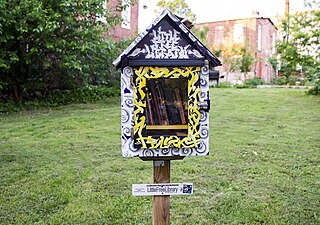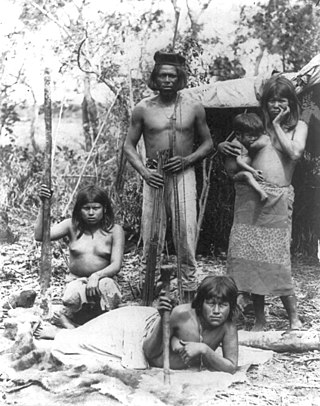
The sociology of knowledge is the study of the relationship between human thought, the social context within which it arises, and the effects that prevailing ideas have on societies. It is not a specialized area of sociology. Instead, it deals with broad fundamental questions about the extent and limits of social influences on individuals' lives and the social-cultural basis of our knowledge about the world. The sociology of knowledge has a subclass and a complement. Its subclass is Sociology of scientific knowledge. Its complement is the sociology of ignorance.

Alfred Schutz was an Austrian philosopher and social phenomenologist whose work bridged sociological and phenomenological traditions. Schutz is gradually being recognized as one of the 20th century's leading philosophers of social science. He related Edmund Husserl's work to the social sciences, using it to develop the philosophical foundations of Max Weber's sociology, in his major work Phenomenology of the Social World. However, much of his influence arose from the publication of his Collected Papers in the 1960s.

Personal life is the course or state of an individual's life, especially when viewed as the sum of personal choices contributing to one's personal identity.

Erving Goffman was a Canadian-born American sociologist, social psychologist, and writer, considered by some "the most influential American sociologist of the twentieth century".
Activities of daily living is a term used in healthcare to refer to people's daily self-care activities. Health professionals often use a person's ability or inability to perform ADLs as a measurement of their functional status. The concept of ADLs was originally proposed in the 1950s by Sidney Katz and his team at the Benjamin Rose Hospital in Cleveland, Ohio. The concept of ADLs has been added to and refined by a variety of researchers since that time. For example, many indexes that assess ADLs now include some measure of mobility. Additionally, to be more inclusive of the range of activities that support independent living, in 1969, Lawton and Brody developed the instrumental activities of daily living (IADLs). ADLs are often used in the care of people with disabilities, people with injuries, and elderly people. Younger children often require help from adults to perform ADLs, as they have not yet developed the skills necessary to perform them independently.

Anthony Giddens, Baron Giddens is an English sociologist who is known for his theory of structuration and his holistic view of modern societies. He is considered to be one of the most prominent modern sociologists and is the author of at least 34 books, published in at least 29 languages, issuing on average more than one book every year. In 2007, Giddens was listed as the fifth most-referenced author of books in the humanities. He has academic appointments in approximately twenty different universities throughout the world and has received numerous honorary degrees.
The theory of structuration is a social theory of the creation and reproduction of social systems that is based on the analysis of both structure and agents, without giving primacy to either. Furthermore, in structuration theory, neither micro- nor macro-focused analysis alone is sufficient. The theory was proposed by sociologist Anthony Giddens, most significantly in The Constitution of Society, which examines phenomenology, hermeneutics, and social practices at the inseparable intersection of structures and agents. Its proponents have adopted and expanded this balanced position. Though the theory has received much criticism, it remains a pillar of contemporary sociological theory.

Henri Lefebvre was a French Marxist philosopher and sociologist, best known for pioneering the critique of everyday life, for introducing the concepts of the right to the city and the production of social space, and for his work on dialectical materialism, alienation, and criticism of Stalinism, existentialism, and structuralism. In his prolific career, Lefebvre wrote more than sixty books and three hundred articles. He founded or took part in the founding of several intellectual and academic journals such as Philosophies, La Revue Marxiste, Arguments, Socialisme ou Barbarie, Espaces et Sociétés.
The Journal of Mundane Behavior was a triannual peer-reviewed academic journal of sociology covering everyday behavior and experiences. It was published online with three issues a year. The journal's first issue came out in February 2000 and the last issue appeared in 2004.

Harold Garfinkel was an American sociologist and ethnomethodologist, who taught at the University of California, Los Angeles. Having developed and established ethnomethodology as a field of inquiry in sociology, he is probably best known for Studies in Ethnomethodology (1967), a collection of articles. Selections from unpublished materials were later published in two volumes: Seeing Sociologically and Ethnomethodology's Program.

Automaticity is the ability to do things without occupying the mind with the low-level details required, allowing it to become an automatic response pattern or habit. It is usually the result of learning, repetition, and practice. Examples of tasks carried out by 'muscle memory' often involve some degree of automaticity.

Dramaturgy is a sociological perspective commonly used in micro-sociological accounts of social interaction in everyday life.

In criminology, rational choice theory adopts a utilitarian belief that humans are reasoning actors who weigh means and ends, costs and benefits, in order to make a rational choice. This method was designed by Cornish and Clarke to assist in thinking about situational crime prevention.
Dramatism, a communication studies theory, was developed by Kenneth Burke as a tool for analyzing human relationships through the use of language. Burke viewed dramatism from the lens of logology, which studies how people's ways of speaking shape their attitudes towards the world. According to this theory, the world is a stage where all the people present are actors and their actions parallel a drama. Burke then correlates dramatism with motivation, saying that people are "motivated" to behave in response to certain situations, similar to how actors in a play are motivated to behave or function. Burke discusses two important ideas – that life is drama, and the ultimate motive of rhetoric is the purging of guilt. Burke recognized guilt as the base of human emotions and motivations for action. As cited in "A Note on Burke on "Motive"", the author recognized the importance of "motive" in Burke's work. In "Kenneth Burke's concept of motives in rhetorical theory", the authors mentioned that Burke believes that guilt, "combined with other constructs, describes the totality of the compelling force within an event which explains why the event took place."
Institutional ethnography (IE) is an alternative approach of studying and understanding the social. IE has been described as an alternative philosophical paradigm, sociology, or (qualitative) research method. IE explores the social relations that structure people's everyday lives, specifically by looking at the ways that people interact with one another in the context of social institutions and understanding how those interactions are institutionalized. IE is best understood as an ethnography of interactions which have been institutionalized, rather than an ethnography of specific companies, organizations or employment sectors, which would be considered industrial sociology or the sociology of work. For the institutional ethnographer, ordinary daily activity becomes the site for an investigation of social organization. IE was first developed by Dorothy E. Smith as a Marxist feminist sociology "for women, for people"; and is now used by researchers in social sciences, education, nursing, human services and policy research as a method for mapping the translocal relations that coordinate people's activities within institutions.
John A. Bargh is a social psychologist currently working at Yale University, where he has formed the Automaticity in Cognition, Motivation, and Evaluation (ACME) Laboratory. Bargh's work focuses on automaticity and unconscious processing as a method to better understand social behavior, as well as philosophical topics such as free will. Much of Bargh's work investigates whether behaviors thought to be under volitional control may result from automatic interpretations of and reactions to external stimuli, such as words.
A habit is a routine of behavior that is repeated regularly and tends to occur subconsciously.

The sociology of space is a sub-discipline of sociology that mostly borrows from theories developed within the discipline of geography, including the sub fields of human geography, economic geography, and feminist geography. The "sociology" of space examines the social and material constitution of spaces. It is concerned with understanding the social practices, institutional forces, and material complexity of how humans and spaces interact. The sociology of space is an inter-disciplinary area of study, drawing on various theoretical traditions including Marxism, postcolonialism, and Science and Technology Studies, and overlaps and encompasses theorists with various academic disciplines such as geography and architecture. Edward T. Hall developed the study of Proxemics which concentrates on the empirical analysis of space in psychology.
Homecare is health care or supportive care provided by a professional caregiver in the individual home where the patient or client is living, as opposed to care provided in group accommodations like clinics or nursing home. Homecare is also known as domiciliary care, social care or in-home care. It comprises a range of activities, especially paramedical aid by nurses and assistance in daily living for ill, disabled or elderly people.
The social production of space is a concept in the sociology of space which contends that space is neither a thing nor a container, but a product and means of production. Thus, space is produced and constructed socially and a set of human relations. It was pioneered by philosopher Henri Lefebvre in his 1974 book La Production de l'espace.












